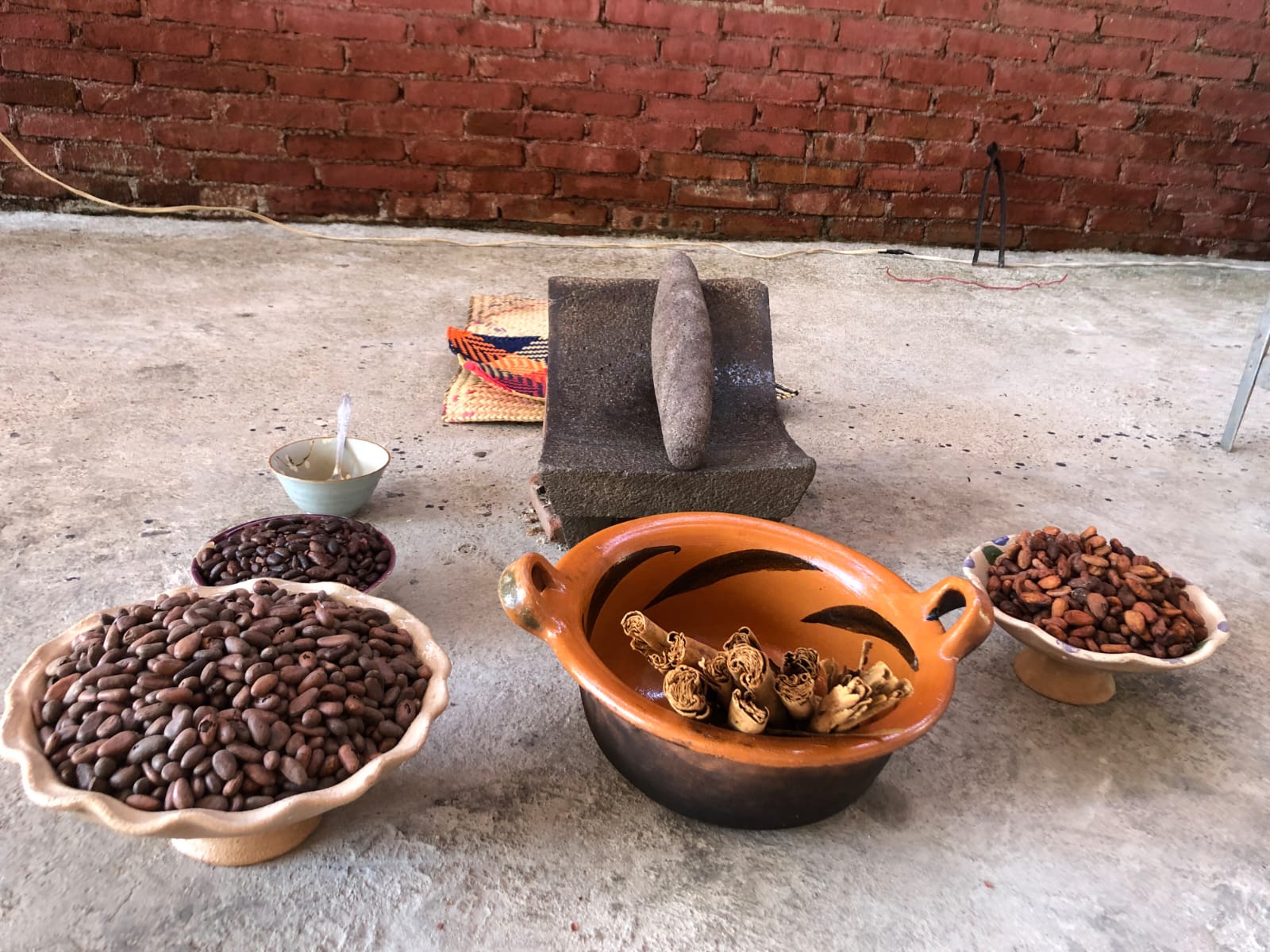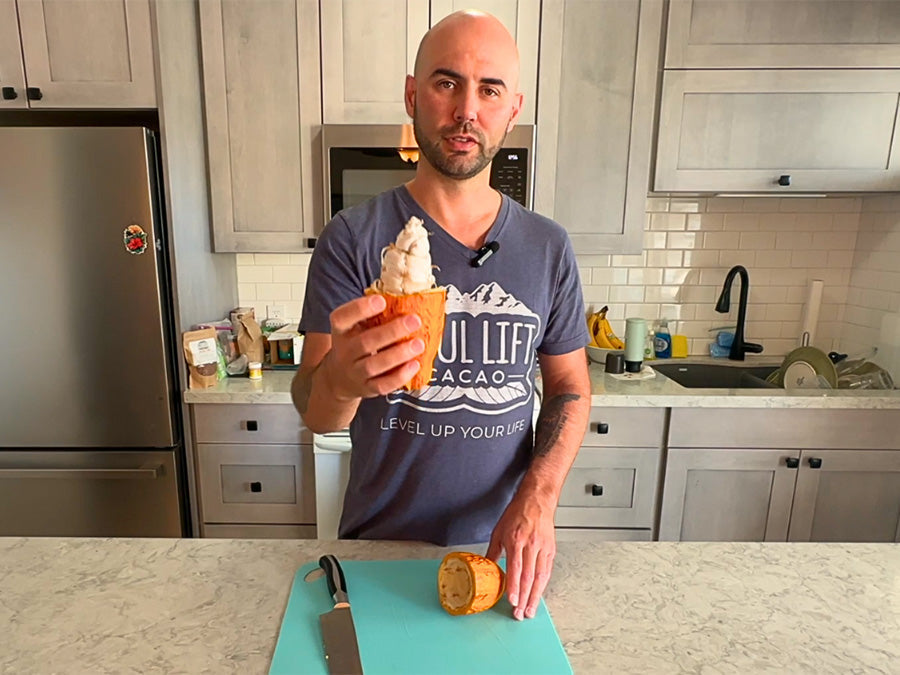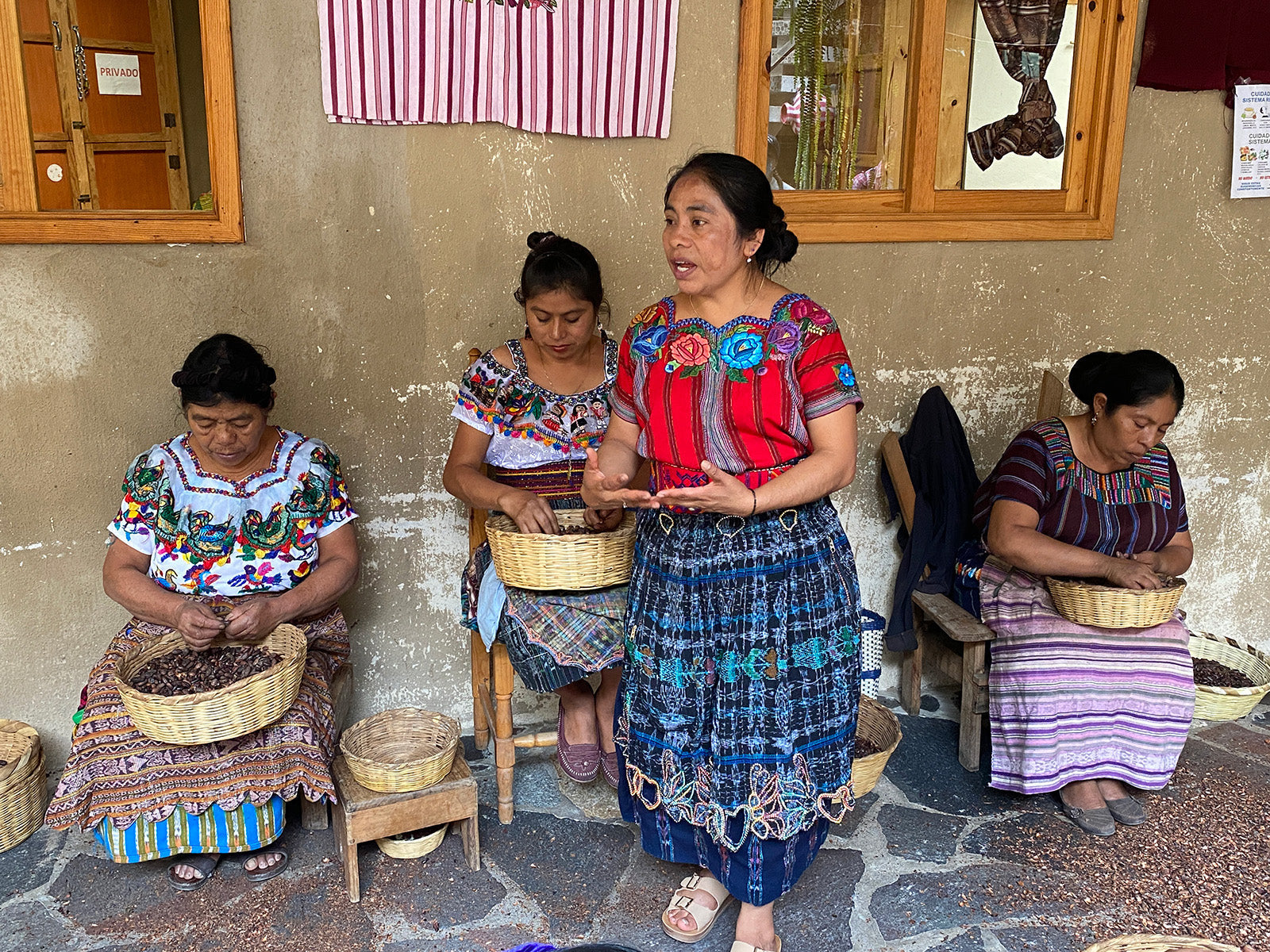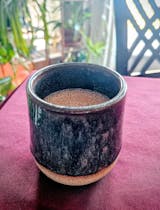Words by Nick Meador
Nick [R] and Enjoly Mar [L] with the Utz K'aslemal collective, makers of El Cielo, La Noche, and Pacalá ceremonial cacao varieties, all made without any machines and in alignment with historic Mayan spiritual beliefs. (Photo by Marquie M. Murphy)
For years, the true value of authentic ceremonial cacao has been artificially suppressed.
What does that mean exactly? Basically, most products labeled "ceremonial cacao" fall into one of two categories:
-
Less authentic (mass produced in a factory) but sold by a licensed, inspected food business.
-
More authentic, but sold through unlicensed/black market channels.
Soul Lift Cacao started with a mission to make real ceremonial cacao more accessible in the U.S. And as soon as that mission became a real possibility (i.e., a source appeared that was a good fit for a flagship product), I went through the steps to start a food business in a licensed commercial kitchen.
That combination has always made Soul Lift a rare exception in the modern ceremonial cacao movement. It also means that our prices have usually been higher than both the black market products and mass-produced fakes.
Yet to me, it wasn't even a question what was the responsible route. If I was going to give ceremonial cacao the respect it deserves, then I had to take the steps to do it legally.
To me this is also about safety and accountability. Soul Lift Cacao's facilities are regularly inspected by the Oregon Department of Agriculture, and is also subject to occasional inspection by the Food & Drug Administration (FDA). Plus the FDA has the authority to inspect our imports during shipment.
Think about it – any licensed food business would be forced to make a correction or recall a product if there was a safety issue with it. But if something goes wrong with a black market food product, there's literally no way to force that vendor to be accountable. No one would buy other food on the black market, yet for some reason it continues to be common with cacao.
And as for the mass-produced fake products, they are textbook cultural appropriation.
They cut out the indigenous artisans and too many of their cacao traditions, which go back thousands of years.
It can be very difficult to evaluate the numerous cacao choices that have appeared on the Internet, or to verify the claims that vendors make. So people tend to accept the marketing language about "ethics" and "direct trade," without exploring deeper or even knowing what information is truly important. Especially if the price of the product is similar to what else is out there.
In the past Soul Lift Cacao tried to match those prices, but as a legal food business trying to maintain our high ethics, we barely covered our operational costs. In order to understand that, it's important to consider the percentage markup on a product.
The average in consumer packaged goods (GPGs) is about a 4x markup, meaning that whatever it costs a company to make the product (called "cost of goods sold," or COGS), that's multiplied by 4 to determine the retail price. In many cases the markup is even higher, potentially 8x or more. For example, a $4 cup of high-end coffee probably has at least an 8x markup, making it an easier business model.
In a 4x markup, only 25% of the retail price is lost to the cost of producing the goods. But in order to match the price of products called "ceremonial cacao," our markup has typically been only 2.5x. That means about 40% of the retail price is lost to the cost of buying the inventory and having the licensed business.
If you've gotten confused by all this, that's totally understandable! The point is that both the black market products and mass-produced fakes are far more profitable. The black market products don't have the costs of rent, business insurance, license fees, etc. And the mass-produced fakes are made by cutting costs that would otherwise go to indigenous artisans for doing most or all of the preparation by hand.
This matters because, upon first glance, 1lb of something labeled "ceremonial cacao" with a price tag of $55 (the approximate market average in 2024) would have looked overpriced to many people. Especially if they've never paid more than $6 or $7 for a chocolate product, which most commonly comes in chocolate candy bars.
In fact it's not really possible to know if a product is overpriced without more transparency about the costs that go into making and selling it.
Both black market vendors and mass-produced fraudsters drive down prices and undermine the indigenous communities that have carried sacred cacao traditions for thousands of years.
And for Soul Lift Cacao to continue fulfilling its mission, we must significantly change our prices. We will still do our best to offer a range of options. (NOTE: Read how our prices have already been significantly higher than "fair trade" chocolate.)
This also speaks to the collective conversation about whether there really is a "ceremonial cacao" or if it is just a marketing gimmick. It is actually very real – both the deeply held spiritual beliefs about cultivation and preparation of cacao, and the ancient traditions of connecting with cacao in ritualized ways.
The cacao doesn't need to be used only in a traditional way or even in a modern cacao circle to be considered "ceremonial." But the varieties that are made without machines, that are traceable back to a specific farm or community, and that are made fully in alignment with an indigenous Cosmovision do deserve to be distinguished and honored.
The closest parallel to this isn't craft chocolate but hyper-regional, culturally distinct, high-end products such as tequila, mezcal, Scotch whisky, and Champagne. No one would blink an eye about paying $100 or more for a top-notch bottle of Scotch. That's how we need to start thinking about authentic ceremonial cacao.
Soul Lift Cacao is proud to contribute to a historic correction by restoring authentic ceremonial cacao to its rightful worth.
This new pricing honors the true labor, lineage, and spirit behind every seed — and helps protect the future of this sacred medicine by ensuring that Soul Lift can keep serving you and the mission.
Thank you for reading and supporting our unique model. In doing so, you are helping to clarify the conversation about ceremonial cacao, and proving that we can have both authenticity and accountability in this modern ceremonial cacao movement.
Related Posts

A blanket tariff on Mexican imports would have a devastating effect on the cost of Mitla ceremonial cacao, which is grow
Read More
Most people never see what comes before a cacao block, or even a drink. And it's a shame, because it can help us appreci
Read More
The price of Heart of the Earth cacao has risen a lot recently. Some factors are the same for all our cacao. Yet this un
Read More





